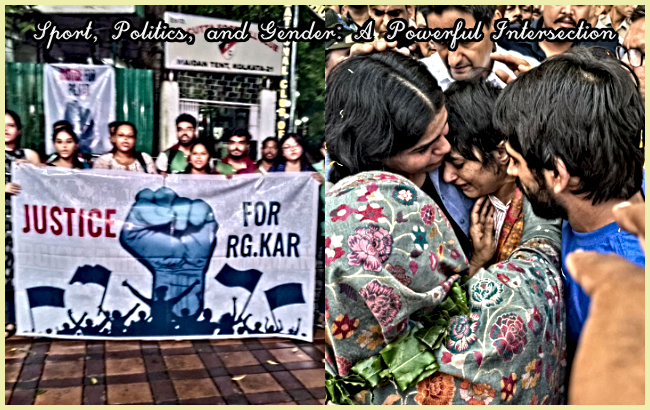Sport, Politics, and Gender: A Powerful Intersection
Sport has always been a powerful tool for bringing people together, promoting healthy competition, and fostering a sense of community. However, it is also a space where politics and gender intersect, often leading to controversy and conflict. In recent times, we have seen how sport can be used as a means of protest and as a platform to challenge stereotypes and promote mutual education.
The recent cancellation of the Kolkata Derby, one of India’s most popular football matches, due to a heinous crime, highlights the complex relationship between sport and politics. The match was called off after a young woman was brutally raped and murdered in the city, leading to widespread protests and calls for justice. Fans of both teams, East Bengal and Mohun Bagan, came together to demand action from the authorities and to express their solidarity with the victim’s family.
The cancellation of the match was a powerful statement, demonstrating how sport can be embroiled in politics and how it can be used as a tool for protest. It also highlighted the responsibility that sports organizations have to address social issues and to use their platform to promote positive change.
Another recent example of sport being used as a means of protest is the arrival of wrestler Vinesh Phogat in Delhi. Phogat, who is one of India’s most successful female wrestlers, has been vocal about the gender discrimination she has faced in the sport. She has spoken out against the lack of support and resources for female athletes and has called for greater recognition and respect for women in the field.
Phogat’s arrival in Delhi was a powerful symbol of protest against gender injustice. She was greeted by a crowd of supporters, including fellow athletes and activists, who came together to show their solidarity and to demand change. Her story is a reminder of the important role that sport can play in challenging stereotypes and promoting gender equality.
Sport has the power to bring people together, to inspire and to unite. However, it is also a space where politics and gender intersect, often leading to controversy and conflict. The cancellation of the Kolkata Derby and the arrival of Vinesh Phogat in Delhi are just two examples of how sport can be used as a means of protest and as a platform to challenge stereotypes and promote mutual education.
As we continue to navigate the complex relationship between sport, politics, and gender, it is important to remember the responsibility that sports organizations have to address social issues and to use their platform to promote positive change. By working together, we can create a more inclusive and equitable world, both on and off the field.

